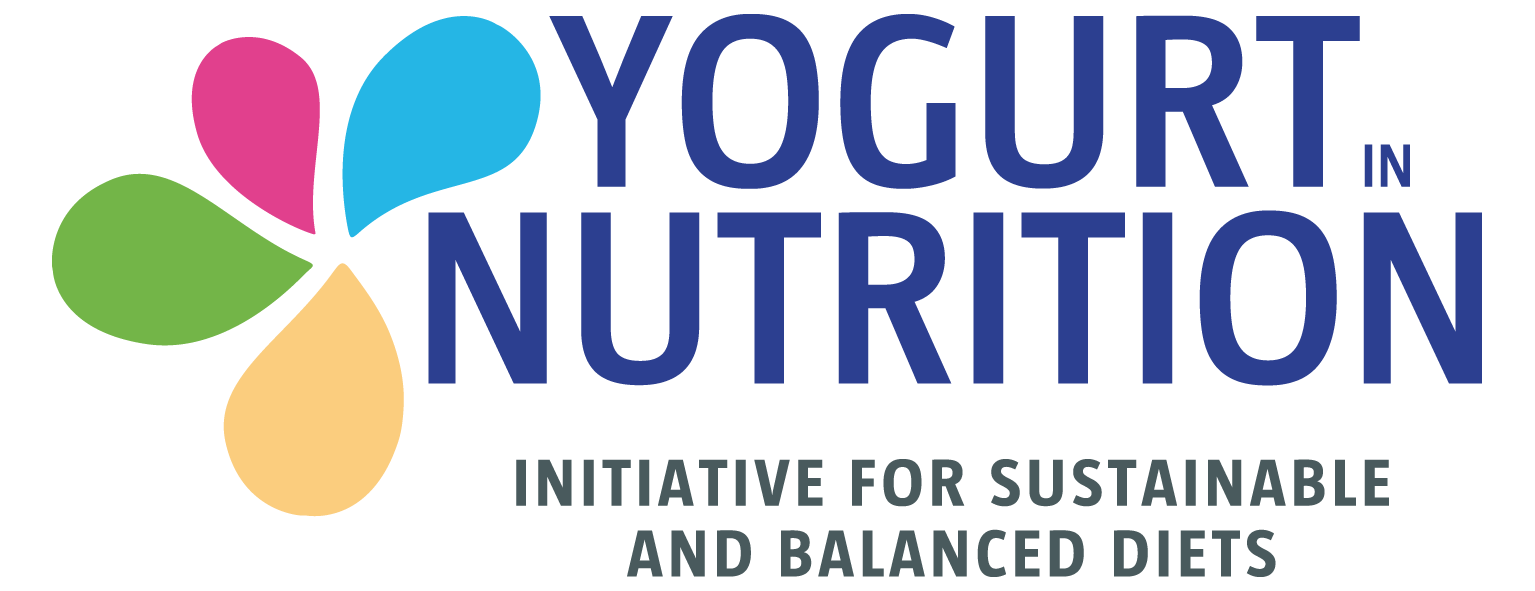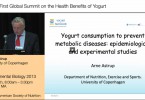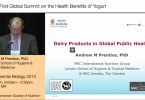The First Global Summit on the Health Effects of Yogurt is part of the multi-year Yogurt in Nutrition Initiative (YINI), a global collaboration between the American Society for Nutrition, Danone Institute International and the Nutrition Society in the United Kingdom to evaluate the current evidence base on the nutritional impact of yogurt. Through annual scientific conferences and supporting activities, this initiative aims to stimulate new research and communicate available scientific information to health care professionals and the public.
At the summit, experts discussed the need for studies that examine the specific health attributes of yogurt, the optimal role of dairy foods in a healthy diet and the effect of yogurt on specific populations, such as the young and the elderly. The U.S.-based Dairy Research Institute also partnered in this inaugural summit.
Yogurt as a part of a healthy diet
Yogurt is an excellent source of protein and essential nutrients such as calcium, potassium and magnesium and also contains healthy bacteria (probiotics). The unique nutrient profile of yogurt has spurred research on its impact on a variety of topics such as bone and gut health, diabetes, body weight regulation, cancer and cardiovascular disease.
Much of what is known about the potential health effects of yogurt has come from studies examining one’s overall consumption of dairy products, including milk and cheese. Fewer studies have focused on yogurt specifically.
Consumption of dairy products is associated with a reduced risk of developing some of the most prevalent and expensive diseases in modern society, including diabetes, hypertension and cancer.1,2,3 Intake of cultured milk and yogurt specifically has been linked to a reduced risk of developing bladder cancer3, a lower risk of heart attack and heart disease, and a decrease in blood pressure.4,5
Several studies have also shown that yogurt consumption could aid weight management. A prospective study on three cohorts involving more than 120,000 U.S. adults showed that consumption of yogurt, fruits, vegetables and whole grains were associated with less weight gain over time, with yogurt showing the greatest association.6 Another study showed that yogurt consumption is linked with smaller gains in weight and waist circumference over time.7
“Current research on the potential impact of yogurt on health is encouraging and we look forward to learning more about the unique contribution that yogurt offers to individuals and overall public health,” said Sharon M. Donovan, PhD, RD, Past President of the ASN and professor of nutrition at the University of Illinois. “Our goal in this initiative is to document what we know and what we do not know to guide future research efforts.”
“We are energized by the summit and look forward to fostering more dialogue and sharing new research at future scientific events,” said Prof. Raanan Shamir, MD, President of the Danone Institute International.
For more information, please visit www.nutrition.org/yogurt.





